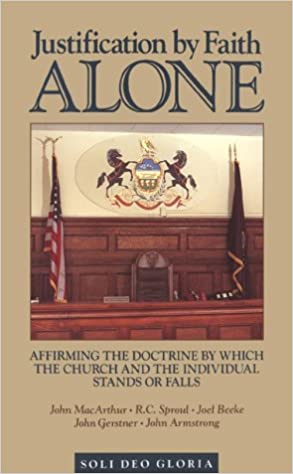A Brief Chapter Summary from Books At a Glance
By Chris Bolt
Summary
Martin Luther sought peace with God in the midst of his hatred for the word “righteousness” which described what he knew God required of him. As Luther dwelt on Romans 1:17, he finally came to understand what is known as the doctrine of justification by faith alone, the broad topic of this article. A narrower topic of this article, which affects the debate between Romanism and Protestantism, is the meaning of the word “by” in “justification by faith.” The preposition in question is considered here scripturally, theologically, experientially, and polemically.
The Bible teaches justification by faith in Old Testament passages such as Genesis 15:6 and Habakkuk 2:4 and in New Testament passages such as Romans 3:20, Romans 11:20, and Galatians 3:24. The relationship between faith and justification is contained in what the preposition “by” entails. The simple dative pistei emphasizes the necessity of faith, while the preposition dia clarifies that faith is instrumental in justification. Thus Christ’s righteousness is received by means of faith. Finally, ek denotes the occasion, not cause, of justification.
Faith never constitutes a meritorious ground of justification, as clearly evidenced in the aforementioned treatment of the prepositions, and as corroborated by the fact that the Spirit-inspired Scriptures never once utilize dia with the accusative, which would denote faith as the ground of merit. Rather, the ground of justification is always the righteousness of Christ alone. . . .
[To continue reading this summary, please see below....]The remainder of this article is premium content. Become a member to continue reading.
Already have an account? Sign In
Buy the books

JUSTIFICATION BY FAITH ALONE: AFFIRMING THE DOCTRINE BY WHICH THE CHURCH AND THE INDIVIDUAL STANDS OR FALLS, by John MacArthur, R. C. Sproul, Joel Beeke, John Gerstner, John Armstrong